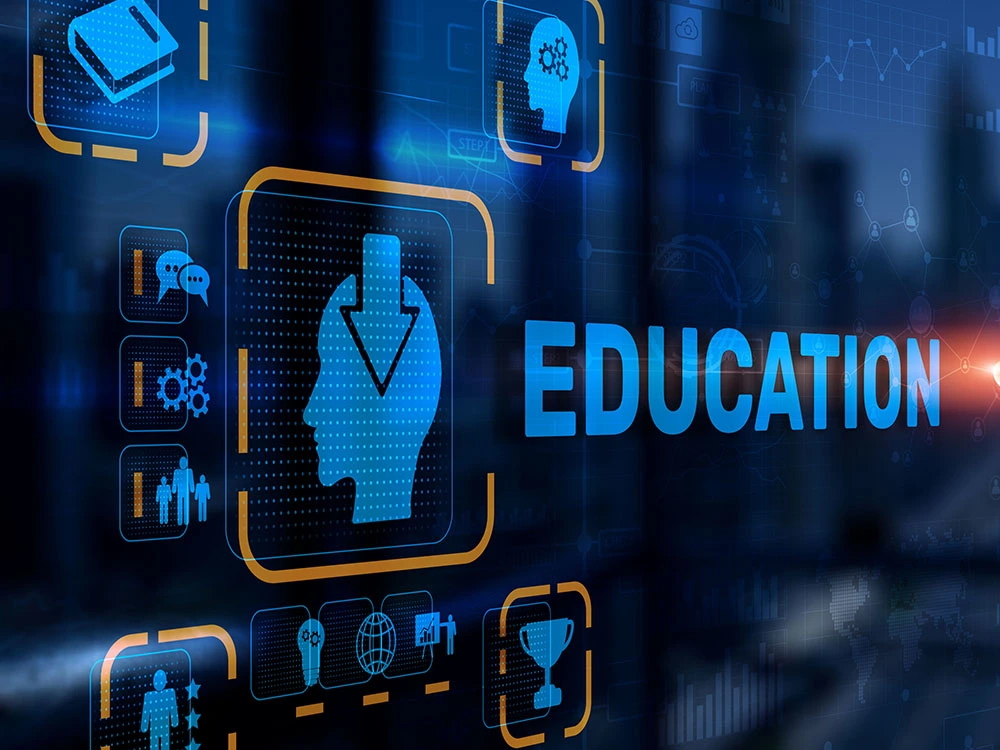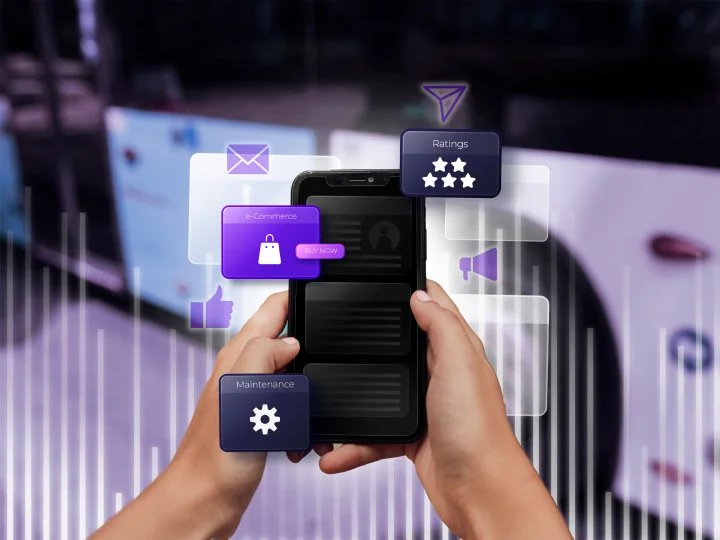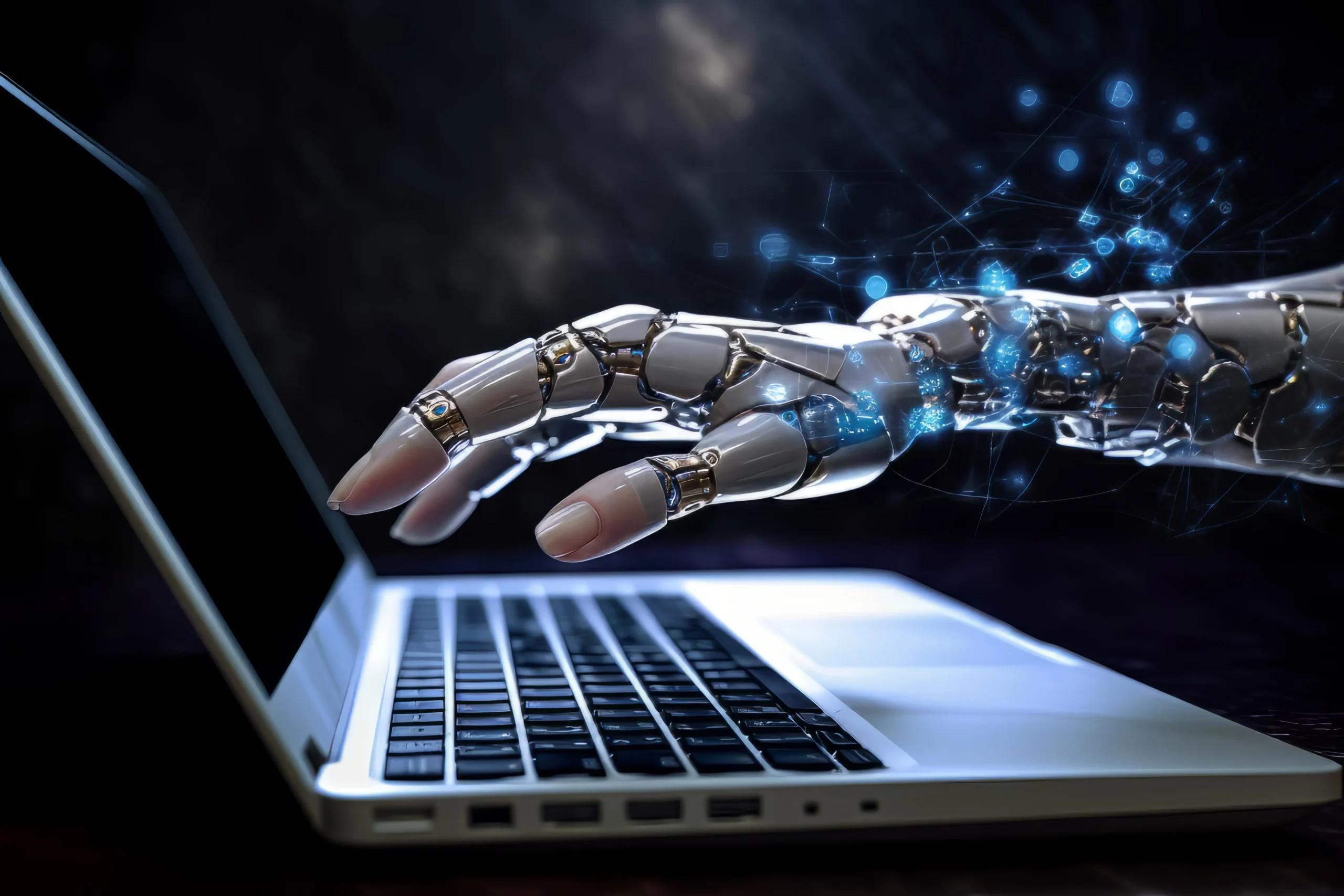
In the rapidly evolving technological landscape, Artificial Intelligence (AI) has emerged as a transformative force with immense global significance. At axiusSoftware, we believe that AI will definitely bring change for the better, and we are playing our part by providing services like text analytics and deep learning, along with the development of IoT hardware, firmware, and chatbots, to aid that process.
The simulation of human intelligence in machines is revolutionizing industries across the world, unleashing unprecedented advancements and efficiencies. Its applications span from healthcare and finance to transportation and entertainment, promising a future of boundless possibilities.
The education industry, in particular, stands to benefit significantly from AI integration. AI-powered adaptive learning platforms can cater to individualized student needs, providing personalized curricula and real-time feedback. Virtual tutors and interactive simulations can make learning engaging and accessible, irrespective of geographical constraints. Furthermore, AI’s data analysis capabilities enable educators to identify and address learning gaps effectively, leading to improved academic outcomes for students.
Although the history of AI in education has been prevalent and impactful, AI is poised to revolutionize the education sector, ushering in a new era of personalized and efficient learning. As AI continues to advance, its integration into education promises to enhance engagement, accessibility, and effectiveness, ultimately reshaping the future of learning. Let’s take a closer look at what this holds for Technology development companies like us.
How AI Technology Developers Like axiusSoftware Can Impact the Future of the Education Industry
Personalized Learning
AI-powered adaptive learning platforms analyze individual student performance and learning styles to deliver personalized content and learning pathways. This tailoring enhances engagement and comprehension as students receive material at their pace and in formats that suit their preferences.
DreamBox Learning, an AI-driven adaptive learning platform, provides personalized math lessons to students in kindergarten through grade 8. The platform assesses students’ current knowledge levels and dynamically adjusts the difficulty of problems to match their abilities. A study by SRI Education found that students using DreamBox for five or more hours per week made 59% more progress in math than those not using the platform.
Intelligent Tutoring Systems
AI-powered intelligent tutoring systems act as virtual tutors, offering personalized guidance and feedback to students. These systems use machine learning algorithms to identify areas where students need assistance and provide targeted interventions to help them improve.
Carnegie Learning’s Cognitive Tutor is an AI-based intelligent tutoring system for mathematics. A study published in the Journal of Educational Computing Research found that students who used Cognitive Tutor improved their math performance more significantly compared to students using traditional textbook-based instruction. The study also noted that the Cognitive Tutor’s adaptive feedback was particularly beneficial for struggling students.
Automated Grading and Assessment
AI-powered grading systems streamline the assessment process by automatically grading assignments and exams. This not only saves time for educators but also provides immediate feedback to students, fostering continuous learning and improvement.
EdX, an online learning platform, utilized AI to grade essays and open-response assignments submitted by students. A study conducted by researchers from Stanford University and the University of California, Berkeley, compared the AI-grading results with those of human graders and found a high level of agreement between the two. The study concluded that AI-grading could be a reliable and scalable solution for providing feedback on writing assignments in online education.
Student Support and Engagement
AI chatbots and virtual assistants provide round-the-clock support to students, answering queries and offering assistance on various topics. These interactive tools create a supportive learning environment and improve student engagement.
Georgia State University implemented an AI-powered chatbot to help students with inquiries related to admissions, course registration, and financial aid. The chatbot, named “Pounce,” successfully addressed over 200,000 student queries within its first semester of operation. Pounce not only eased the burden on university staff but also contributed to higher student retention rates by providing timely and helpful information.
Predictive Analytics for Student Success
AI-based predictive analytics models analyze historical student data to identify patterns and predict academic performance. This enables educators to intervene early and provide targeted support to students at risk of falling behind.
The University of California, San Diego, employed predictive analytics models to identify students at risk of not graduating on time. By analyzing data such as course performance, engagement, and attendance, the university’s AI system could flag struggling students, allowing advisors to intervene with timely support and resources. As a result, the university saw an increase in graduation rates and student success.
Can AI Affect the Education Industry Negatively?
AI in education presents exciting opportunities; however, it’s always necessary to weigh out the pros and cons of AI in education. It is essential to address certain concerns that need careful consideration:
Data Privacy and Security
Collecting and storing vast amounts of student data for AI analysis raises privacy concerns.
Ensuring robust security measures to protect sensitive information from breaches and unauthorized access.
Bias and Fairness
AI algorithms might inadvertently perpetuate existing biases present in historical data, leading to unfair outcomes for certain student groups.
Striving for diversity and inclusivity in AI development and continuous monitoring to prevent biased decision-making.
Lack of Human Interaction
Excessive reliance on AI-driven learning could reduce face-to-face interactions, hindering the development of essential social skills.
Striking a balance between AI-driven instruction and traditional teaching methods for a holistic learning experience.
Job Displacement for Educators
Automated grading systems and AI tutors might lead to concerns about job displacement for educators.
Emphasizing AI as a supportive tool to enhance teaching rather than a substitute for human educators might be the key.
Over-reliance on Standardized Testing
AI-driven assessments may prioritize standardized testing, narrowing the focus of education and neglecting broader skill development.
Ensuring AI assessments complement a comprehensive evaluation of students’ abilities and talents.
Unethical Use of AI
Ensuring transparency in AI algorithms and decision-making processes to avoid unethical practices.
Establishing guidelines and regulations for AI’s ethical implementation in education
Technological Dependence
Over-reliance on AI could lead to reduced problem-solving skills and critical thinking in students.
Balancing AI integration with nurturing students’ creative and analytical abilities is important too.
Addressing these concerns requires collaboration among policymakers, educators, and AI developers to ensure responsible AI integration in education. Striking a harmonious balance between technology and human touch will be essential to harnessing AI’s potential while mitigating its potential drawbacks in the education sector.
In conclusion, the widespread adoption of AI and its diverse applications across various sectors hold the promise of a technologically enriched future. Embracing AI in the education industry can revolutionize the way knowledge is imparted and acquired, and that’s why for many years now, axiusSoftware has been empowering learners and educators alike to unlock their full potential in an increasingly AI-driven world.











